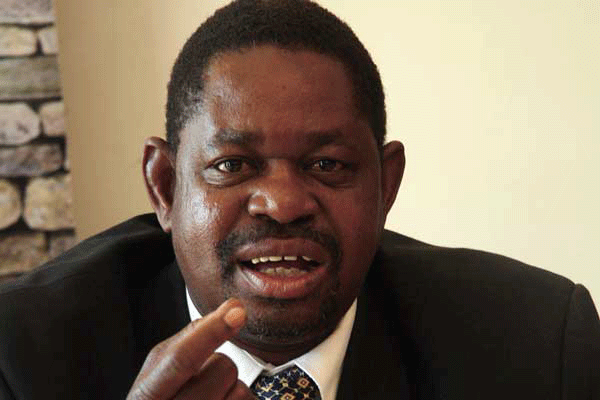
Constitution refers to a nation or State’s fundamental set of laws or a body of fundamental principles or established precedents according to which a State or other organisation is acknowledged to be governed.
Tendai A Sauta
As such, the national Constitution embraces human rights, laws and freedoms that govern the nation of Zimbabwe. I am sure this is enough to clear the confusion rendered to us by comedian Freddy Manjalima, aka Kapfupi, in one of his favourites acts when he emphatically says: “Constitution! Constitution!” as he desperately begs for loyalty from his troublesome wife “Mai Maturaburo”.
If this artistic expression reflects the understanding of the majority about a constitution, a national awareness campaign on constitutional literacy is long way overdue.
The Constitution of Zimbabwe has been equally the same with the character of “Mai Maturaburo” to politicians, academics, sociologists, psychologists, legal experts and the public at large. This crisis has emerged since the turn of the new millennium as parliamentarians, civic society, non-governmental organisations and the general public have been in constant debate either to amend or rectify discrepancies in the current supreme law.
To date, there are three tangible constitutional editorials in response to the Lancaster Constitution of 1979, namely: The Constitutional Commission Draft, which was prepared by the government-sponsored commission led by Chief Justice Godfrey Chidyausiku and was rejected through a national referendum in 2000.
This was followed by the National Constitutional Assembly in 2001 and, lastly, the Kariba Draft, which was put together by a selected group of political party representatives from the Zimbabwean Parliament.
As such, each of the three distinct constitutional sects, has areas of strengths and, furthermore, the Lawyers for Human Rights Society of Zimbabwe in their comparative study has given a set of recommendations for further improvements of each draft or passing on as a Bill.
- Chamisa under fire over US$120K donation
- Mavhunga puts DeMbare into Chibuku quarterfinals
- Pension funds bet on Cabora Bassa oilfields
- Councils defy govt fire tender directive
Keep Reading
The search for common ground remains vital until a good Constitution is in existence like in the majority of the First World countries.
However, it should not be overlooked that countries like the United States and South Africa have built their constitutions over a period of not less than a decade.
In a recent debate by a selected panel of Zanu PF former Cabinet minister Munyaradzi Paul Mangwana, Jessie Majome (MDC-T MP, Harare West), PDP leader Tendai Biti, prominent lawyers, activists and politicians organised by AMH and Hivos Foundation, Mangwana pointed out several achievements by the Zimbabwean Government to amend the Constitution from its oppressive form of the original Lancaster House Constitution of 1979.
Recognisable achievements were turning around the gender imbalance, education, citizenship and health delivery systems which were as a result of successful constitutional amendments.
The audience found the forum as a positive step in the right direction towards democracy as Mangwana re-emphasised the rule of law as people put pressure on the government for constitutional compliance.











